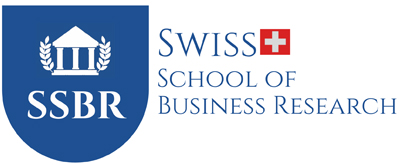Online Business Programmes
Tailored for you!
DISCOVER OUR ONLINE PROGRAMMES
MASTER PROGRAMMES
DOCTORATE PROGRAMMES
Mohamed Ekwass
Bachelor in Business Management Alumnus
Marketer at ICT Value
Barcelona, Spain
“Where can I start? From the moment I joined SSBR I knew this was the space I wanted to be in. The process from the time I joined until the day I finished has been made extremely easy by the staff that was there with me every single step of the way. The knowledge I have gained throughout the years that I have been a part of SSBR has helped me tremendously in my personal work and business ventures. The attention and support I’ve got from my Professors pushed me in every way imaginable to become better and grow not only as a professional but as a person as well. I would like to thank everyone at SSBR that has been with me through this chapter of my life.”
Contact Mohamed on LinkedIn
Naftali Rumpaisum
MBA alumnus
Head of New Business at Global Water Intelligence (GWI)
Oxfordshire, England, United Kingdom
“Studying at SSBR has been a great experience for me and especially with the support from our professors. They made the whole process feel seamless even though it was fully online. The SSBR business course helped me in my professional development and I am applying what I have learned in real time. The key business practices have prepared me to step into a more senior role and become a better leader and strategist.”
Contact Naftali on LinkedIn
Ellis Laura Griffith
PhD By Portfolio alumnus
Regional People Leader at McKinsey & Company
Amsterdam, The Netherlands
“I entered this program having always aspired to and never found the time to work toward and earn a PhD. I entered the program with a large dose of curiosity and a small dose of worry – about the online experience, about interacting with professors, about the authentic rigor of the program – as it was brand new at the time.
Having grown up in a household with a University Professor and having chosen my own profession in the business world, I often thought about the gap between these two worlds. I often wondered at how to close that gap and to bring practical applications of advanced principles to business in order to elevate priorities, to push strategic thinking, to relieve the classic analysis paralysis, and move quickly to operationalize excellence.
As SSBR I found the answer to this age old quandary. I found excellent and applicable materials, phenomenal globally minded mentorship, and a new type of academic rigor – one that pushed my thinking and creativity and has changed the way that I think about my work. Every small worry was quickly resolved as I came to understand that they were simply for the unknown and that the innovation which is the hallmark of SSBR is exactly what we need right now – to marry academia and business and to advance our ability to collaborate and think and act together toward a better future.”
Contact Ellis on LinkedIn
